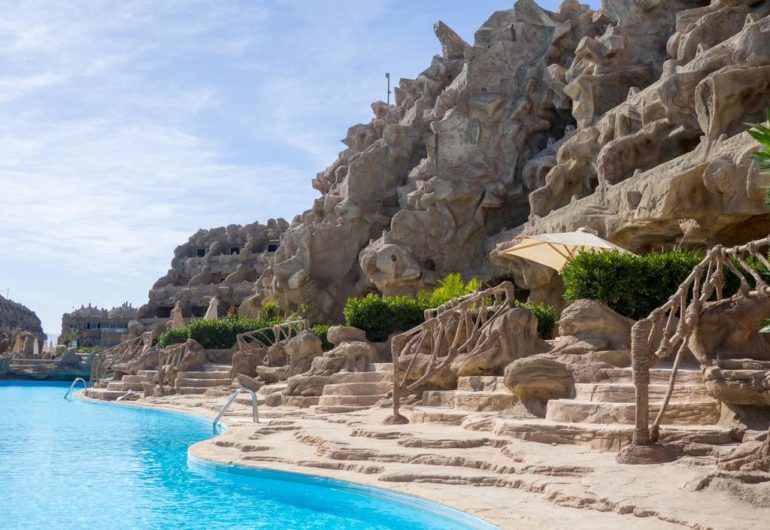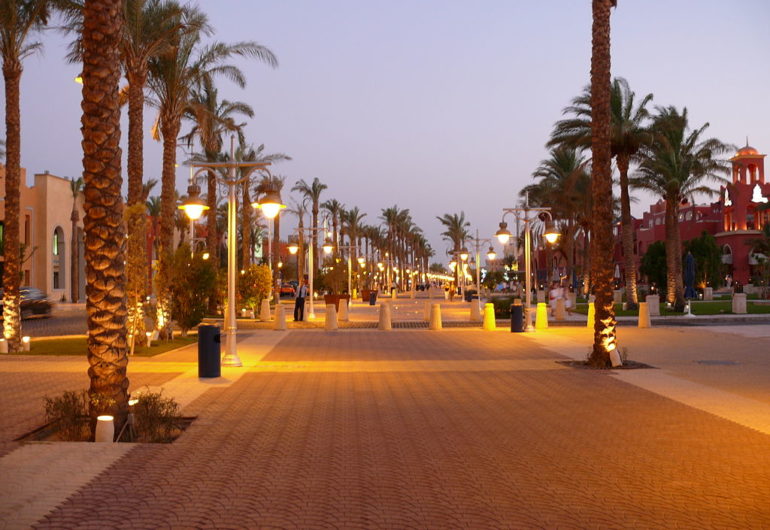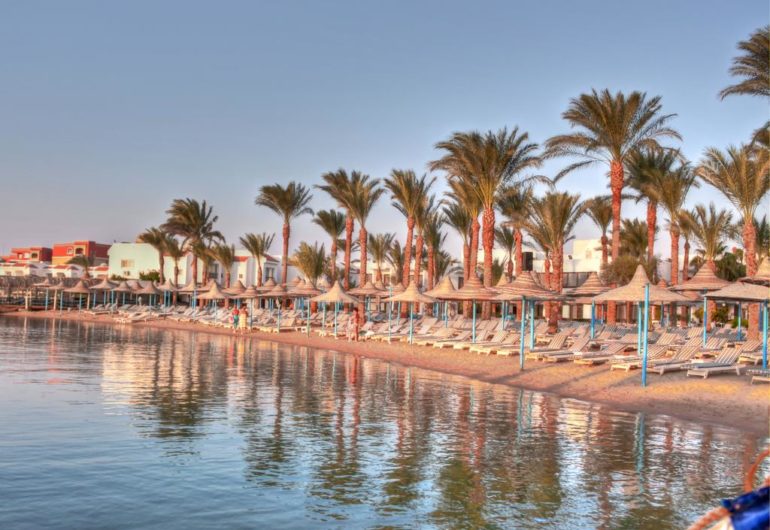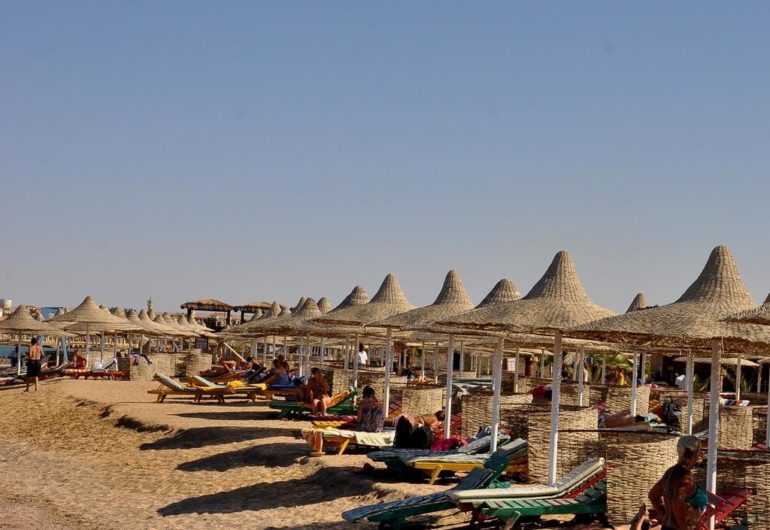General Information about Hurghada
Hurghada has a subtropical-desert climate, with mild-warm winters and hot to very hot summers. Temperatures in the period December–January–February are warm, while November, March and April are comfortably warm. May and October are hot and the period from June to September is very hot. The average annual temperature of the sea is 24°C, ranging from 21°C in February and March to 28°C in August.
The highest temperature recorded occurred on June 12, 2013 and was 46°C, while the lowest record temperature was recorded on February 2, 1993 and was 0°C.
TOURISM
Although a town in its own right Hurgada’s current major industry is foreign and domestic tourism, owing to its dramatic landscape, year-round dry and temperate climate and long stretches of natural beaches. Its waters are clear and calm for most of the year and have become popular for various watersports, particularly recreational scuba diving and snorkelling.
Dive sites around Abu Ramada Island, Fanadir, Giftun Kebir, and Giftun Soraya are popular. Tourists also visit shipwrecks such as the El Mina or the Rosalie Moller. The beach at Hurghada is not secluded, out to Sigala the beach is then followed by coastal holiday villages and then desert






 +91-9815423555
+91-9815423555 info@globalbeeholidays.com
info@globalbeeholidays.com
